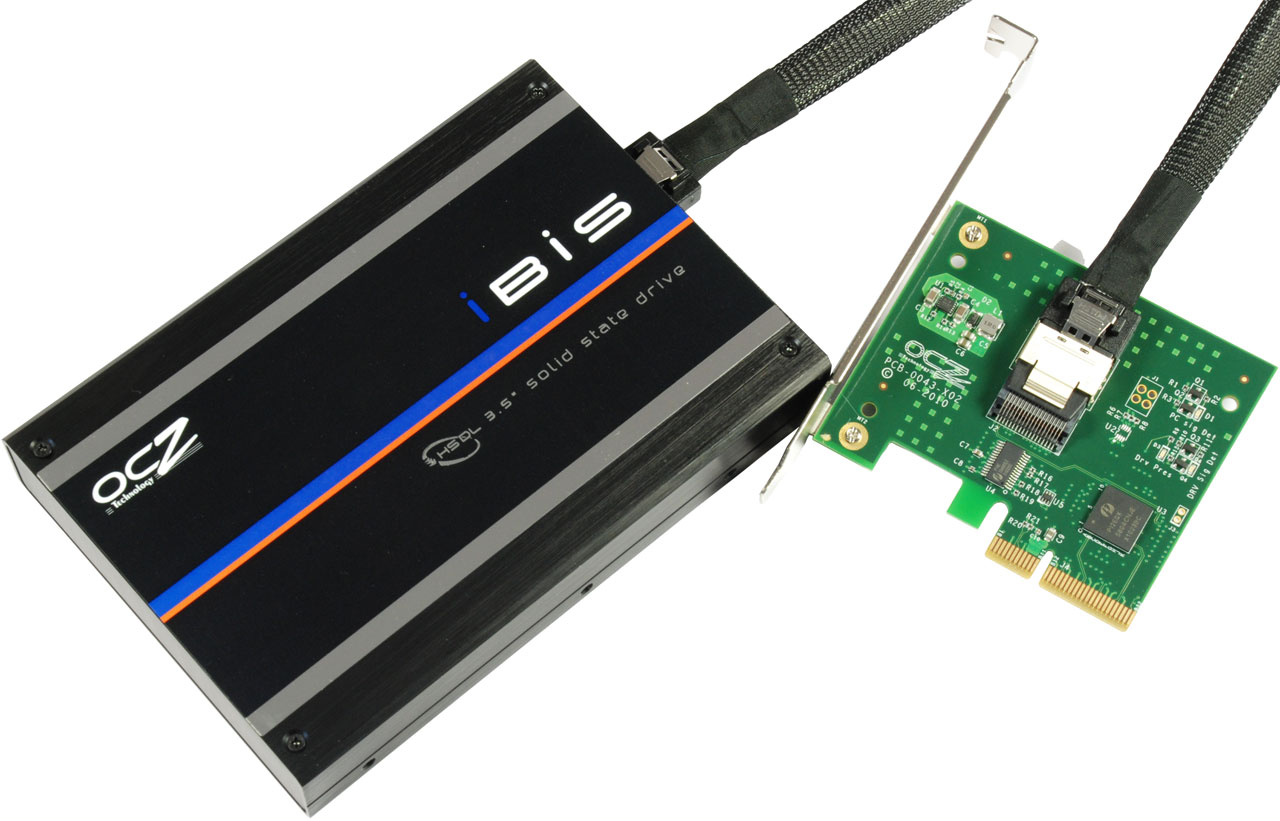Three PCI Express-Based SSDs: When SATA 6 Gb/s Is Too Slow
When it comes time to hunt down the ultimate in storage performance, you simply cannot settle for standard SSDs. Instead, look to PCI Express-based drives that circumvent the limitations of SATA. We have products from Fusion-io, LSI, and OCZ on the bench.
Conclusion
The results give us a mixed impression of these amazing storage devices. Certainly, none of them can be considered perfect PCI Express-based SSDs for enthusiasts or professionals looking to arm a workstation with a fast storage subsystem, despite some bone-crushing results.
Administrators looking for high-performance solid-state storage should start their search with the ioDrive by Fusion-io. Its performance is so impressive and so consistent across all of the benchmark categories that we have no choice but to declare the ioDrive this shootout's performance winner. Not only is at great in sequential throughput, 4 KB random read/writes, and I/O workload tests, but it is also hardly susceptible to performance degradations under heavy use. And it doesn't care if you're moving compressible log files or incompressible video data. Kudos to Fusion-io for a product that is still superior, despite its age.
However, the Fusion-io drives are the most expensive ones (count on spending several grand), and they're hobbled in many environments by the fact that you cannot boot from them. That immediately disqualifies them from use in an enthusiast machine or a workstation.
Instead, LSI and OCZ are left in the ring. We clearly found that OCZ is best suited to sequential operation, while LSI does better in many of the I/O tests. However, OCZ's Ibis does have weaknesses that we don’t want to accept, given its $700 price tag (for the 240 GB version, that is). The Ibis cannot execute concurrent reads and writes very well, as the AS SSD copy tests prove. In addition, it suffers from the fact that its mainstream SandForce SF-1220 controllers rely on data compression. Once data cannot be compressed, performance can drop significantly. That's something to keep in mind when you think about the ways you'd use the Ibis. Lastly, this drive struggles in some of the I/O performance tests.
LSI is left, and the WarpDrive SLP-300 does give us a really great show. Depending on the workload, it either trades blows with the ioDrive or it comes in second place. It also suffers at times from the nature of its more enterprise-oriented SandForce SF-1500 controllers, but the handicaps affecting non-compressible data are less significant than on the Ibis. Effectively, LSI is showing off the I/O capabilities of its LSISAS2008 controller, as it dominates the I/O test patterns for database, file server, Web server, and workstation scenarios. But then you have to take into account that the WarpDrive costs more than $7000. Youch. Truly, this belong in an I/O-bound server. And in that application, the WarpDrive is an amazing I/O performance asset.
Given that last line, we really have to stop, turn around, and look at OCZ's Ibis again. Is it worth spending 10x the money on LSI device's to dance around the OCZ drive's weaknesses? We’re talking about state-of-the-art SSD storage here. In some situations, it makes sense to put forth the added investment. More often, though, we have to think that OCZ's approach turns out to be smarter, despite its handful of shortcomings. At the end of the day, OCZ got innovative and designed something new to address a market niche it perceived. What results is a value-oriented solution that still sounds expensive to a majority of desktop users. However, in the context of today's other two PCI Express-based solutions, OCZ's Ibis turns out to be the most sensible choice in our story.
And in case you're wonder, the third-generation RevoDrives are just about here. They may give OCZ an even more compelling price/performance story. We'll have more on those soon!
Get Tom's Hardware's best news and in-depth reviews, straight to your inbox.
